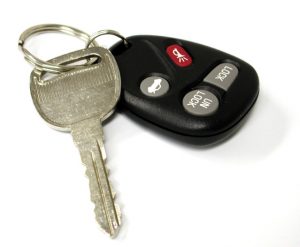The foremost symbol in the United States that represents independence and as well as freedom is our Flag. Created and sewn by Betsy Ross during the Revolutionary War it was clearly the symbol of Independence from the rule of Great Briton. During our flag’s 243-year history it has become a beacon of hope to those oppressed, support to our fighting forces, and pride in being an American. It is also a symbol of the foundation of what we hold dear, the Constitution of the United States. Whenever we have been attacked from those outside our country or within, the first thing we do, is raise the flag to show the world and each other that we are strong, we stand together, and we will survive.
Throughout history, whenever there has been a threat to our independence, there is a force that ignites our survival. The Civil War is an example of another war to save the union as well as abolish slavery. Amazon’s original series, the “Man in the High Castle” is a “what if…” scenario of what could have happened if the US lost WWII and the spoils of victory divided the country between Germany and Japan. Even within that scenario, there is a resistance, that works to thwart an unamerican way of life. The spirit of independence has become part of our identity. We carry this spirit throughout our lives.
Let’s explore other significant symbols of independence that on an individual level are just as compelling and lasting in our lives as the flag. Symbols, which are taken for granted throughout our lifetime, yet when threatened, we fiercely hold on to and fight to keep. Our lives are strewn with independence type milestones. Consider the crawling infant, or the burgeoning toddler as they take their first steps, the child getting on the school bus. Natural rites of passage as we grow toward adult.
I think nothing signifies personal independence more than getting your driver’s license. It is the first truly powerful taste personal freedom. The ability to go anywhere on your own without supervision. I am sure, I’m not the only one that as a teen used the library as a destination when in actuality, I was doing something with my friends. The good old days of no GPS tracking or “phone locator” app. We quickly learn, and then take for granted over the years that this driving privilege may one day be taken away. We enjoy road trips with friends, family vacations and lament the “stupid” drivers on the road. What we never think about, is that too soon after we untether ourselves from our workday a loved one may question our safety and ability to continue driving. Instinctually and fiercely we challenge their assumption. Any perceived threat to our independence brings about a forceful reaction. Perhaps, there is some validity in their concern, perhaps not. I can tell you, as a single Mom, that was always in the driver’s seat, it is very difficult for me to sit in the passenger seat regardless of the driver. I, like many of you, grip onto the door, press the imaginary brake, and think they are driving too fast.
Often, a senior will self-regulate their driving. Many seniors have difficulty driving at night. This may be attributed to developing cataracts and may resolve after surgery. Another self-regulation is staying in their local area, closer to home, shorter trips. To have the ability to come and go as you please, is precious, priceless, and worth protecting. The advent of car services has diminished the totality of dependence on others since you can “order” the car and infringe on someone’s time. My clients have relayed the devastating feelings associated with having to ask someone, be it family or friend to “give them a ride”.
As an elder care coordinator, the most frequently asked questions I get is, “How do I take the keys away from my parent? I don’t think they are safe to drive anymore.” Unless there is imminent danger such as a loved one having been in multiple accidents or having had recent driving, disorientation requiring rescuing such as getting lost and needed someone to come an get them, let a trained evaluator make that decision. The best way to tackle this from a respect and dignity perspective is confer with their PCP and request he order a driving evaluation. This can be conducted through the adaptive technology dept. of a rehabilitation hospital, or they can retake the road test through the DMV. The biggest safety issues with driving are vision, and reaction time. Regardless of the outcome, loss of driving = loss of independence


